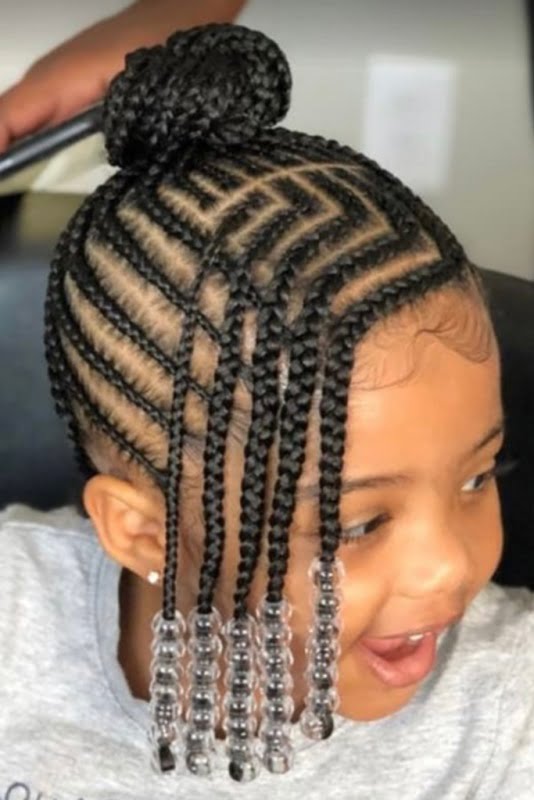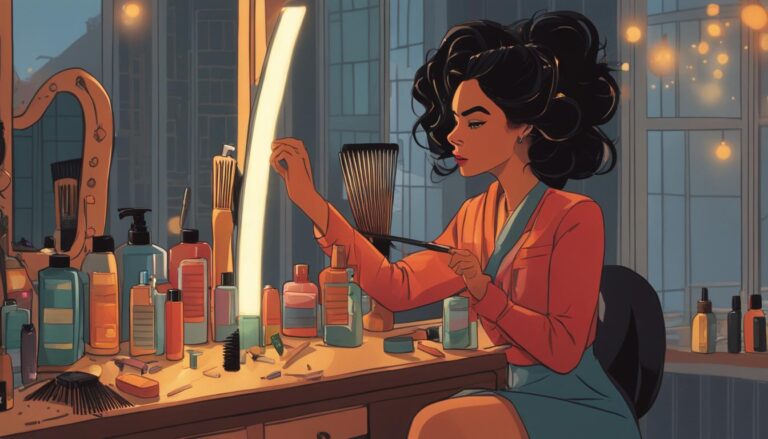Does Sun Promote Hair Growth?
Many people wonder if exposure to the sun can actually help their hair grow faster. There are various theories and claims surrounding this topic, but what is the truth? Let’s explore the relationship between sun exposure and hair growth to separate fact from fiction.
Key Takeaways:
- Sunlight stimulates the production of vitamin D, which is essential for healthy hair growth.
- Vitamin D deficiency can contribute to hair loss or thinning.
- However, excessive sun exposure can lead to hair and scalp damage, including burns and increased risk of skin cancer.
- Genetics, hormones, age, and nutrition also play significant roles in hair growth.
- While the sun may have some benefits for hair growth, it is crucial to prioritize sun protection to prevent damage to the hair and scalp.
The Role of Vitamin D in Hair Growth
Vitamin D is a vital nutrient that plays a significant role in the healthy growth of hair follicles. Research has indicated that individuals experiencing hair loss, including stress-induced hair loss and androgenetic alopecia, often have lower levels of vitamin D in their bodies. While vitamin D supplementation can be beneficial in addressing a deficiency, it is important to address other contributing factors to hair loss, such as stress, poor scalp health, and other nutrient deficiencies.
Hair growth is a complex process influenced by various factors, and vitamin D acts as a key player in promoting and maintaining healthy hair follicles. By supporting the development and maintenance of hair follicles, vitamin D contributes to the overall thickness and quality of hair. However, it is essential to note that vitamin D alone is not a magic solution for hair growth and should be considered in conjunction with other factors that impact hair health.
To ensure optimal hair growth, it is advisable to maintain healthy levels of vitamin D through a balanced diet or supplements. Additionally, managing stress levels, adopting a good hair care routine, and addressing any underlying health conditions that may contribute to hair loss are crucial steps in promoting healthy hair growth. Consulting with a healthcare professional can provide personalized guidance on the appropriate dosage and supplementation plan for individuals seeking to improve hair growth through vitamin D.
The Importance of Vitamin D Supplementation
In cases where individuals have been diagnosed with a vitamin D deficiency or have confirmed low levels of vitamin D, supplementation may be recommended by healthcare professionals. Vitamin D supplements can help to restore adequate levels in the body and support overall hair health. However, it is always best to consult with a healthcare professional before starting any supplementation regimen to ensure proper dosage and suitability for individual needs.
Factors Influencing Hair Growth
When it comes to hair growth, there are several factors that play a significant role. These factors include genetics, hormones, age, and nutrition. Understanding how these factors influence hair growth can help you better care for your hair and promote its health.
Genetics: Your genes determine the speed and quality of your hair growth. Some people naturally have thicker and faster-growing hair, while others may have hair that grows at a slower rate. While you cannot change your genes, understanding your genetic predisposition can help you set realistic expectations for your hair growth.
Hormones: Hormones, such as estrogen and progesterone, can also impact hair growth. Imbalances in these hormones can lead to hair thinning or excessive hair loss. Additionally, hormonal changes that occur with age, pregnancy, or certain medical conditions can affect the quality and thickness of your hair.
Age: As we age, our hair goes through changes. It is normal for hair to become thinner and more prone to breakage as we get older. Additionally, aging can also lead to changes in hair color, with many people experiencing graying hair. Taking care of your hair and scalp becomes increasingly important as you age to maintain its health and vitality.
Nutrition: A well-balanced diet is essential for healthy hair growth. Your hair needs essential nutrients, such as protein, vitamins (including vitamin D), and minerals, to thrive. Poor nutrition can lead to hair loss, thinning, and dullness. Incorporating foods rich in these nutrients into your diet can help promote optimal hair growth.
Key Takeaways:
- Genetics, hormones, age, and nutrition all influence hair growth.
- Your genes determine the speed and quality of your hair growth.
- Hormones like estrogen and progesterone can affect hair thickness and quality.
- Aging can lead to changes in hair, including thinning and graying.
- A well-balanced diet is necessary for healthy hair growth.

Does Hair Grow Faster in the Summer? Myth or Fact?
One common belief is that hair grows faster in the summer due to increased sun exposure. But is this really true? Let’s take a closer look at the relationship between summer, sun exposure, and hair growth.
While it’s true that the sun’s rays can have some positive effects on hair growth, the difference in growth rate between summer and other seasons is minimal. Hair growth is primarily determined by genetics, hormones, and overall hair health, rather than seasonal changes. So, while you may notice a slight increase in hair growth during the summer months, it is not a significant enough factor to make a noticeable difference.
However, it’s worth noting that seasonal changes can affect the health of your hair. During colder months, the lack of moisture in the air and exposure to indoor heating can lead to dryness and damage. This can result in hair breakage and slower growth. So, it’s important to take extra care of your hair during the winter to prevent these issues.
Factors Influencing Hair Growth
Several factors influence hair growth, including genetics, hormones, age, and nutrition. Genetics play a significant role in determining the rate and quality of hair growth. Hormonal imbalances can also impact hair growth, with conditions like thyroid disorders and polycystic ovary syndrome (PCOS) leading to hair loss or thinning. Aging can cause changes in hair, such as reduced thickness and graying. Finally, a balanced diet rich in essential nutrients like vitamins A, C, E, and biotin is crucial for promoting healthy hair growth.
- Genetics
- Hormones
- Age
- Nutrition
In conclusion, while the summer sun can provide some benefits for hair growth, the difference in growth rate between seasons is minimal. Genetics, hormones, age, and nutrition have a more significant impact on hair growth than seasonal changes. It is important to prioritize overall hair health and care for your hair throughout the year, rather than relying solely on the sun for faster growth.
The Impact of Sun on Hair and Scalp
Exposing our hair and scalp to the sun can have both positive and negative effects. While the sun’s rays can provide some benefits for hair growth, it is important to be mindful of the potential damage that UV radiation can cause. Sun damage can lead to various issues, including hair protein damage, color fading, and dryness.
UV radiation from the sun can cause the hair protein to weaken and become dull, brittle, and frizzy. It can also strip the hair of its natural moisture, resulting in dry and damaged locks. Additionally, prolonged sun exposure can lead to the fading of hair color, especially for those with colored or chemically treated hair.
It’s not just the hair that is at risk. The scalp is also vulnerable to sun damage, as excessive sun exposure can cause burns and skin damage. This can result in scalp issues such as redness, inflammation, and even sunburn. Protecting both the hair and scalp from the sun’s harmful rays is crucial to maintain healthy hair and prevent long-term damage.

Protecting Your Hair and Scalp
To prevent sun damage to your hair, there are several steps you can take:
- Wear a hat or scarf to provide shade and protect your hair from direct sun exposure.
- Use hair products that contain UV protection to shield your hair from the harmful effects of the sun.
- Avoid spending prolonged periods in the sun, especially during peak hours when the sun’s rays are strongest.
- Regularly moisturize your hair and scalp to keep them hydrated and prevent dryness.
By following these protective measures, you can minimize the damage caused by sun exposure and keep your hair and scalp healthy.
Tips for Protecting and Treating Sun-Damaged Hair
When it comes to enjoying the sun, it’s important to take care of your hair to prevent sun damage. Here are some tips to protect and treat your sun-damaged hair:
1. Wear hats or use hair products with UV protection
One of the simplest ways to protect your hair from the sun’s harmful rays is by wearing a hat or using hair products that contain UV protection. These products act as a barrier, shielding your hair from the damaging effects of UV radiation. Look for sunscreens specially formulated for hair, which can help prevent color fading and dryness.
2. Limit your time in direct sunlight
While it may be tempting to spend long hours basking in the sun, excessive exposure can lead to hair damage. Try to limit your time in direct sunlight, especially during peak hours when the sun’s rays are strongest. Instead, seek shade or cover your hair with a hat or scarf to minimize sun exposure.
3. Moisturize regularly
The sun can cause your hair to become dry and brittle. To combat this, it’s important to regularly moisturize your hair and scalp. Use nourishing hair masks or oils to replenish lost moisture and restore shine. Look for products that contain hydrating ingredients such as argan oil, shea butter, or coconut oil.
4. Use clarifying shampoos
If you’ve been using sun protection products on your hair, it’s essential to remove any buildup that may occur. Clarifying shampoos can help remove residue from hair products, allowing your hair to breathe and absorb necessary nutrients. Use a clarifying shampoo once a week to keep your hair clean and healthy.
By following these tips, you can protect your hair from sun damage and keep it looking healthy and vibrant. Remember, prevention is key, so always prioritize sun protection for your hair when spending time under the sun.

Conclusion
In conclusion, while sun exposure can have some potential benefits for hair growth, it is crucial to prioritize sun protection to prevent damage to both the hair and scalp. The sun’s UVB rays aid in the conversion of 7-dehydrocholesterol to cholecalciferol, which is vital for healthy hair growth. However, the risks associated with sun exposure, such as hair damage, scalp burns, and an increased risk of skin cancer, should not be ignored.
To maintain a balance between sun exposure and hair health, it is essential to incorporate sun protection practices into your hair care routine. Wearing hats or using hair products with UV protection can shield the hair from harmful UV radiation. Additionally, limiting direct sunlight exposure and regularly moisturizing the hair and scalp help prevent dryness, brittleness, and color fading caused by the sun.
Furthermore, it is important to prioritize overall hair health and nourishment to promote healthy and thriving hair. Utilizing clarifying shampoos to remove product buildup, deep conditioning treatments to repair sun damage, and ensuring proper nutrition are all essential steps in maintaining healthy hair in the sun.
Remember, sun and hair growth can go hand in hand, but it is crucial to protect your hair from the potential risks associated with excessive sun exposure. By implementing sun protection practices and prioritizing overall hair health, you can enjoy the benefits of the sun while maintaining beautiful and nourished hair.
FAQ
Does sun exposure make hair grow faster?
While sun exposure can have some benefits for hair growth, such as increased blood circulation and higher vitamin D levels, the effect on actual hair growth is minimal. Other factors, such as genetics and overall hair health, have a more significant impact.
What is the role of vitamin D in hair growth?
Vitamin D plays a crucial role in the healthy growth of hair follicles. Deficiency in vitamin D can contribute to hair loss or thinning. Vitamin D supplementation may help manage certain types of hair loss, but it is important to address other factors that contribute to hair loss as well.
What factors influence hair growth?
Genetics, hormones, age, and nutrition all play a role in hair growth. Genes determine the speed and quality of hair growth, hormones like estrogen and progesterone can affect hair thickness and quality, aging can lead to changes in hair, and good nutrition is necessary for healthy hair growth.
Does hair grow faster in the summer?
Hair does tend to grow slightly faster during the summer due to increased blood circulation and higher vitamin D levels from sun exposure. However, this growth is not significant and varies between individuals. Seasonal changes can affect hair growth, with slower growth observed during winter months.
What is the impact of sun on hair and scalp?
Overexposure to the sun can cause damage to the hair protein, leading to dull, brittle, and frizzy hair. UV rays can fade hair color and dry out the hair. The scalp is also at risk of burns and skin damage from excessive sun exposure.
How can I protect and treat sun-damaged hair?
To protect your hair from sun damage, wear hats or use hair products with UV protection. Avoid excessive sun exposure and limit the time spent in direct sunlight. Regularly moisturize the hair and scalp to prevent dryness. Use clarifying shampoos to remove any buildup from sun protection products. Deep condition and nourish the hair to repair any damage caused by the sun.
Is sun protection important for maintaining healthy hair?
Yes, it is essential to prioritize sun protection to prevent damage to the hair and scalp. Balancing sun exposure with proper hair care, including using UV protection products and maintaining overall hair health, is key to promoting healthy and thriving hair.







